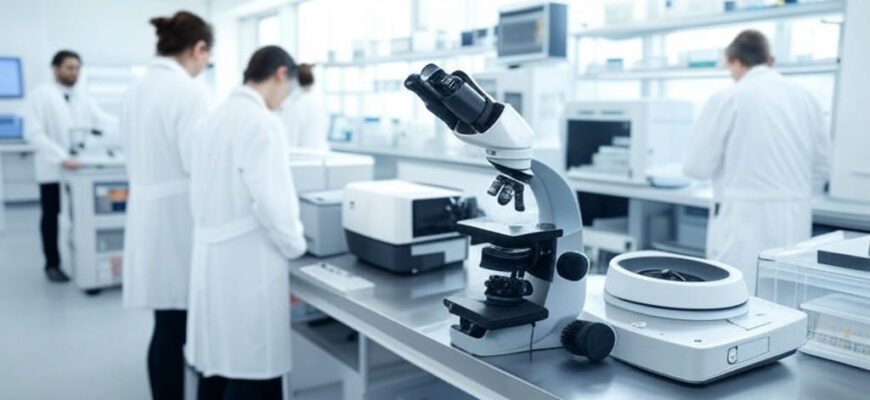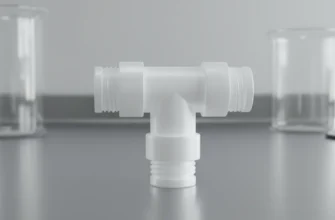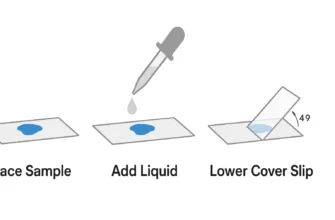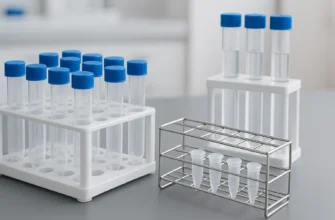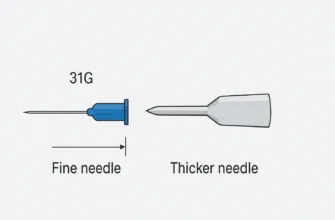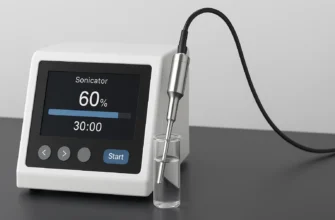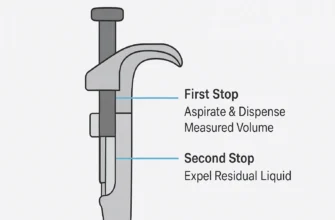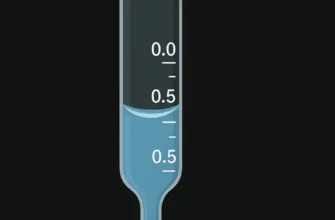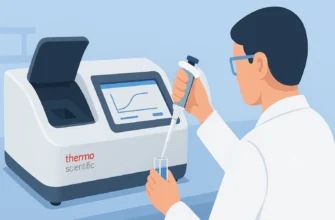Trusted Suppliers for Laboratory Equipment: A Comprehensive Guide to Online Ordering
Laboratory research, clinical diagnostics, and scientific innovation all depend on access to high-quality equipment and supplies. Finding reliable suppliers who can consistently deliver the precision instruments and materials needed for scientific work is crucial for research success and operational efficiency. This comprehensive guide explores the landscape of laboratory equipment suppliers, providing insights into leading companies, online ordering platforms, and best practices for procuring scientific supplies.
Global Leaders in Laboratory Equipment Supply
The laboratory supply industry is dominated by several major players that have established themselves as trusted providers of scientific instruments, consumables, and specialty products. Understanding the strengths and specialties of these suppliers can help laboratories make informed procurement decisions.
Top-Tier Comprehensive Suppliers
Thermo Fisher Scientific
Thermo Fisher Scientific stands as the largest laboratory equipment supplier globally, offering an extensive catalog that covers virtually every laboratory need. Their comprehensive ecosystem includes:
- Scientific instrumentation and analytical tools
- Reagents and laboratory consumables
- Software solutions and integrated services
- End-to-end capabilities from genomic sequencing to bioprocessing
With annual revenues exceeding $35.5 billion and a workforce of over 80,000 employees, Thermo Fisher’s scale and breadth make it a one-stop solution for many laboratories. Their acquisition strategy has further expanded their capabilities, incorporating companies like Qiagen, PPD, and Patheon to strengthen their positioning in genomics, contract research, and bioprocessing.
Agilent Technologies
Agilent Technologies has established itself as the leader in analytical chemistry and diagnostics equipment. Their specialties include:
- Chromatography systems
- Mass spectrometry platforms
- Spectroscopy instruments
- User-friendly software and automation solutions
These tools are essential for pharmaceutical R&D, environmental testing, and food safety applications. Agilent’s focus on analytical instrumentation rather than a broad portfolio has allowed them to lead innovations in high-resolution mass spectrometry and bioanalytical chemistry.
Becton, Dickinson and Co. (BD)
Headquartered in Franklin Lakes, New Jersey, BD serves as a global leader in clinical diagnostics and microbiology equipment. Their product offerings include:
- Automated blood collection systems
- Flow cytometry platforms
- Diagnostic instrument systems
- Medical devices and injection solutions
BD operates through three core business segments: BD Medical (delivery and injection solutions), BD Life Sciences (diagnostic and research tools), and BD Interventional (surgical and interventional care).
Specialized Equipment Providers
Several companies have established strong market positions by focusing on specific laboratory niches:
Mettler Toledo
Mettler Toledo sets the global standard for laboratory balances, weighing instruments, and precision measurement tools. Their pioneering Fully Automatic Calibration Technology (FACT) ensures consistent and error-free measurements, making them the preferred supplier for laboratories requiring absolute accuracy.
Illumina
Dominating the genomics industry, Illumina supplies Next-Generation Sequencing (NGS) technology that powers cancer research, genetic diagnostics, and personalized medicine. Their sequencing platforms are deployed worldwide for human genome research and clinical genomics applications.
Waters Corporation
Waters specializes in liquid chromatography and mass spectrometry, providing critical instruments for drug development, environmental analysis, and food safety. Their HPLC and UPLC systems have become industry standards for analytical chemistry applications.
PerkinElmer
PerkinElmer offers bioanalytics, imaging, and diagnostic instruments used in clinical testing, toxicology, and life sciences research. Their technologies support both human health and environmental safety applications.
European Laboratory Equipment Manufacturers
Europe hosts many prestigious laboratory equipment manufacturers known for their precision engineering and innovation. Notable companies include:
German Engineering Excellence
- KARL STORZ – Specialized medical and laboratory instruments
- SIEMENS – Advanced diagnostic and laboratory systems
- ZEISS – Optical and imaging systems
- EPPENDORF – Laboratory equipment and consumables
- SARTORIUS – Filtration, weighing, and lab technologies
Swiss Precision Instruments
- TECAN – Laboratory automation and detection systems
- ROCHE – Diagnostic equipment and laboratory solutions
- HAMILTON MEDICAL – Specialized medical laboratory equipment
Other European Leaders
- MEDTRONIC (Ireland) – Medical and laboratory technologies
- SMITH & NEPHEW (United Kingdom) – Specialized medical equipment
- PHILIPS (Netherlands) – Advanced imaging and diagnostic systems
- AGFA (Belgium) – Imaging and information technology
Online Platforms for Laboratory Supplies
The digital transformation has revolutionized how laboratories source equipment and supplies, with several dedicated platforms emerging to facilitate online ordering.
Dedicated Scientific Supply Platforms
Thomas Scientific
Thomas Scientific positions itself as a global distributor of products, services, and supply chain solutions for the scientific community. Their platform offers:
- Over 1 million products from more than 3,000 suppliers
- Comprehensive supply of chemistry and laboratory equipment
- Services tailored to diverse industries including Advanced Technology, Biologicals, Cannabis, Clinical, Controlled Environments, Education, Environmental, Forensics, Food and Beverage, and Pharmaceuticals
Their commitment extends beyond product range to include high-quality customer service and support, making them a trusted partner for scientific equipment needs.
Labscoop
Labscoop promotes itself as “The Easy Way to Order Lab Supplies,” offering a team-centric marketplace that streamlines supply shopping, ordering, inventory, and requisitions. Their platform features:
- Millions of lab supplies from thousands of trusted brands in one platform
- Transparent, data-driven search functionality for effective comparison shopping
- Shared shopping cart capabilities that allow laboratory teams to shop collaboratively
- Pre-vetting of suppliers for key certifications and manufacturing practices
Labscoop’s approach focuses on creating a more productive laboratory workflow through intuitive online ordering tools.
Alternative Online Marketplaces
Amazon and General E-commerce Platforms
Many laboratories increasingly utilize general e-commerce platforms like Amazon for certain supplies. According to search results, “millions of dollars of lab purchases from Amazon” are occurring through laboratory sourcing platforms. However, there are important considerations:
- Quality concerns exist, with some products being “junk” while others offer “decent stuff for way better prices”
- Issues with counterfeit products, especially for critical items that need to be sterile, calibrated, or non-expired
- Amazon’s fulfillment policies may result in orders being fulfilled by alternate vendors without notification
- Documentation challenges if problems arise with products
Specialized Direct-to-Consumer Suppliers
Some manufacturers have established direct-to-consumer channels:
- Biobase: Offers electrophoresis equipment and other laboratory tools directly to consumers, with US warehouse facilities
- American Science Surplus and United Nuclear: Provide basic lab equipment for educational and home use
Finding Pre-owned and Liquidated Lab Equipment
For laboratories with budget constraints or those seeking specific discontinued models, the pre-owned and liquidated equipment market offers valuable alternatives:
Auction and Liquidation Specialists
- Dovebid: Frequently used for startup laboratory equipment at competitive prices
- Equipnet: Specializes in lab equipment auctions
- GovDeals: Occasionally offers good laboratory equipment
- Heritage Global Partners: Conducts auctions for laboratory gear
Specialized Resellers
- American Instrument Exchange: Focuses on scientific instruments
- Cambridge Scientific: A prominent reseller in the Boston area
- Surplus Solutions: Offers various laboratory equipment options
- ARC Scientific: Partners with closing laboratories to sell equipment
When purchasing through these channels, buyers should be aware that higher-end machines (like mass spectrometers and plate readers) may not always include necessary computers and software, and may sometimes be sold for parts only.
The Laboratory Purchasing Process
Understanding typical procurement procedures can help streamline the acquisition of laboratory supplies and equipment.
Institutional Procurement Systems
Most academic and research institutions maintain structured purchasing processes:
- Central purchasing systems through which orders must be submitted
- Dedicated websites (like “eShop”) that list approved vendors
- Requirements to specify which grant or funding source should be billed
- Approval workflows involving administrative staff or laboratory managers
Authorization and Approval Hierarchies
Several key roles typically participate in laboratory procurement decisions:
- Laboratory Managers: Directly involved in research and lab activities, well-positioned to request specific supplies based on project requirements
- Procurement Officers: Responsible for sourcing and acquiring goods from the procurement or finance departments
- Authorized Budget Holders: Individuals with control over specific budgets who can make purchases within allocated funds
- Administrative Staff: Manage paperwork, track orders, and coordinate with suppliers
The exact authorization structure varies between organizations, with some institutions having more rigorous procurement policies than others. For example, UK organizations typically require purchases to go through formal systems with different privilege levels based on roles, while US institutions may allow more flexibility, including direct purchases from eBay or Amazon using institutional credit cards.
Key Considerations When Selecting Lab Suppliers
Selecting the right suppliers for laboratory needs involves balancing several important factors:
Quality and Reliability Assessment
The search results highlight significant quality concerns when sourcing lab equipment:
- For critical items requiring sterility, calibration, or specific expiration dates, established scientific suppliers are preferred
- Some institutions explicitly prohibit GLP (Good Laboratory Practice) labs from using certain general e-commerce platforms due to quality concerns
- Documentation and traceability become crucial when problems arise with laboratory products
Price Comparison Strategies
Significant price variations exist across suppliers:
- Basic items like lab timers can be “10x cheaper” on general e-commerce platforms compared to specialized biotech companies
- Even among major scientific suppliers, the same item may show “up to 3x price difference” between providers
- For liquidated equipment, prices typically range around “10-20% of purchase cost”
Institutional Agreements and Restrictions
Many research organizations maintain specific supplier relationships that affect purchasing options:
- Exclusive agreements with certain companies may restrict purchases from competitors
- Some institutions specifically prohibit ordering from certain platforms due to established contracts
- Volume-based pricing arrangements might make certain suppliers more economical for bulk orders
Specialized Support Services
Beyond products themselves, support services often differentiate premium suppliers:
- Installation, calibration, and maintenance capabilities
- Technical support accessibility
- Automation and workflow integration solutions
- Regulatory compliance expertise
Optimizing Your Lab Supply Chain
Developing an efficient laboratory supply chain requires strategic planning and consideration of several factors:
Supplier Consolidation vs. Diversification
The laboratory supply market shows consolidation among major players, with three “big fish” companies dominating: Merck/Sigma-Aldrich, Fisher Scientific/Thermo Fisher, and Avantor/VWR. When developing a supply strategy, laboratories must consider:
- The advantages of consolidated ordering (streamlined processes, potential volume discounts)
- The benefits of diversification (redundancy for critical supplies, competitive pricing, specialized expertise)
- The impact of supplier relationships on long-term research continuity
Trust Development in Supplier Relationships
Research indicates that trust plays a crucial role in successful supply chain management for medical equipment. Key factors that positively influence trust development include:
- Asset specificity (dedicated investments in the relationship)
- Effective communication between parties
- Perceived mutual benefits
- Reduced behavioral uncertainty
This trust subsequently contributes to stronger commitment within the supplier-laboratory relationship, enhancing overall supply chain performance.
Sustainability Considerations
Emerging trends in laboratory supply chain management include increased focus on sustainability:
- Green supply chain strategies for equipment manufacturing
- Environmental considerations in IT equipment usage
- Integration of blockchain and IoT technologies to enhance supply chain transparency and sustainability
- Regular replacement of equipment with energy-efficient alternatives
Conclusion
The laboratory equipment supply landscape offers diverse options for scientists and researchers seeking to equip their facilities. From global leaders like Thermo Fisher Scientific and Agilent Technologies to specialized European manufacturers and emerging online platforms, laboratories have unprecedented access to tools and materials that can advance their work.
When developing procurement strategies, institutions should consider not only pricing and product quality but also support services, sustainability factors, and the development of trusted supplier relationships. By carefully evaluating these elements, laboratories can create efficient supply chains that support their scientific missions while optimizing resource utilization.
The continued evolution of online ordering platforms and direct-to-consumer channels is transforming how laboratories source equipment, offering new opportunities to streamline procurement while presenting new challenges in quality assurance and supplier selection. As this marketplace continues to develop, staying informed about supplier capabilities and performance remains essential for making optimal procurement decisions.

